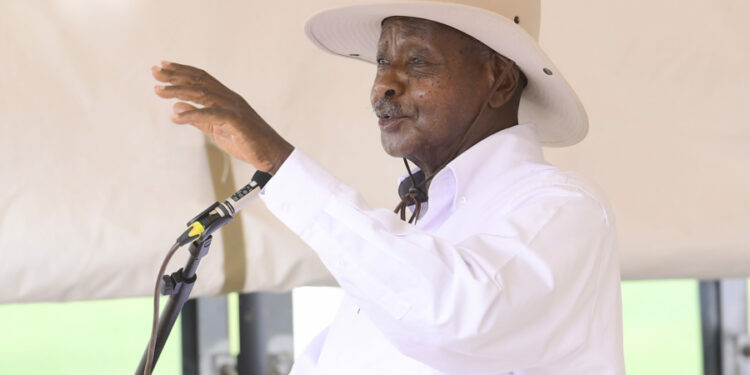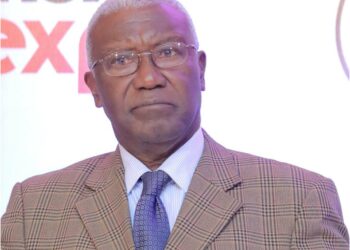President Yoweri Museveni has pointedly laid blame on the Public Procurement and Disposal of Public Assets Authority (PPDA) for what he perceived as a significant roadblock, hindering the progress of vital Public-Private Partnerships (PPPs) in the country.
This, he said has frustrated constructive dealings between state owned agencies and private investors. The President made these remarks while presiding over the fourth bi-annual retreat of the Presidential CEO Forum, held at the Kiira Vehicle Plant in Jinja on Thursday.
This year’s Presidential CEO Forum retreat was themed: “Uganda’s industrialization agenda, positioning the country as a leading source of E-mobility solutions in Africa”.
The impassioned statement by the President comes amidst growing concerns over the stagnation of much-needed infrastructure projects and economic initiatives, raising questions about the efficacy of Uganda’s procurement processes and its potential impact on national development.
Museveni highlighted that certain PPDA protocols, designed for procuring user items like machinery, do not favor large-scale industry setups.
As an example, he criticized the advertisement of a tender for Atiak Sugar Factory’s machinery in local newspapers, which attracted middlemen offering low prices for fake equipment.
According to Museveni, large-scale industry machinery and earth-moving equipment are manufactured by a limited number of global factories that directly sell to interested buyers.
He stressed that PPDA should have engaged with these manufacturers, instead of using local newspaper ads, which are inaccessible to key players in that field.
Museveni further pointed out that middlemen who often win such contracts focus on profit maximization, leading to the purchase of substandard equipment in order to gain significant returns on their investments.
Besides, he contended that PPDA’s scope should be limited to procuring smaller office equipment, stationery, and sanitaryware, items readily available from multiple market players, to encourage fair competition for government opportunities.
He however recommended that the purchase of large machinery should be directly negotiated with manufacturers.
Barbra Mulwana, the forum’s board of Directors chairperson, urged Museveni to ensure a reliable power supply to drive the growth of the electric vehicle industry. She also advocated for a uniform power cost of five USD cents per unit for all industry players nationwide, citing it as a crucial incentive to promote e-mobility.
In response, Museveni pledged to work with the Ministry of Finance to secure the 40 billion Shillings needed to complete the Kiira Motors motor vehicle plant, scheduled for commissioning by year-end.
Museveni envisions the government becoming their primary customer, purchasing their buses for schools, ministries, and agencies, helping Kiira Motors recapitalize and compete effectively in the market.
As the nation closely watches, this bold stance by President Museveni has ignited a contentious debate, with stakeholders eagerly awaiting further developments to understand the potential implications on the country’s future trajectory.
Do you have a story in your community or an opinion to share with us: Email us at editorial@watchdoguganda.com













